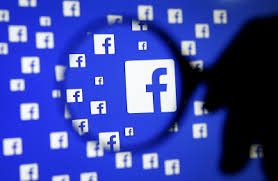
Hundreds of accounts on the largest social media platform of the world Facebook have been removed by the company that targeted Africa. The company also announced that it had banned an Israeli company because of "co-ordinated inauthentic behaviour" primarily aimed against Africa.
Facebook said that the reason for banning and removing the accounts was their participation in posting and propagating fake news, and on political news which also included those related to past and ongoing elections in a number of countries.
In recent years, there has been severe criticism of the role of Facebook all across the world in failing to put a leash on the propagation of Fake news and fake political news on its platform and curbing the use of the platform to influence elections and other politically important events. .
Facebook on its part in 2016, launched a fact-checking programme soon after such allegations surfaced after the elections of Donald Trump as the president of the United States.
265 social media accounts that originated in Israel had been removed by it, Facebook said in a blog post. The post also stated that the posts from the accounts were primarily focused on Nigeria, Senegal, Togo, Angola, Niger and Tunisia in addition to be engaged in "some activity" in Latin America and South East Asia.
"The people behind this network used fake accounts to run pages, disseminate their content and artificially increase engagement.They also represented themselves as locals, including local news organisations, and published allegedly leaked information about politicians," Nathaniel Gleicher, head of cybersecurity policy at Facebook, wrote in the post.
Gleicher said that the internal investigation carried out by Facebook also revealed that the Israeli company Archimedes was related to some of the activities that were conducted through those accounts.
"This organisation and all its subsidiaries are now banned from Facebook, and it has been issued a cease and desist letter," he said.
Facebook said that between December 2012 and April 2019, more than $812,000 for ads was spent by the individuals who were behind these fake accounts and run them. The currencies used for making the payments for those ads were Brazilian reais, Israeli shekel and US dollars, Facebook further said.
According to reports, since 2016, national level elections had been held in five of the six African countries that had been targeted by these bogus Facebook accounts. Additionally, national level election is scheduled to be held in Tunisia later this year.
Analysts see this measure by Facebook as part of its continuing efforts to address worldwide criticisms of its role in failing to eradicate misinformation on its platform that has the potential to influence and impact the manner in which people vote in various elections. This is also an effort by the company to instill faith of the regulators and the users in the company.
(Source:www.bbc.com)
Facebook said that the reason for banning and removing the accounts was their participation in posting and propagating fake news, and on political news which also included those related to past and ongoing elections in a number of countries.
In recent years, there has been severe criticism of the role of Facebook all across the world in failing to put a leash on the propagation of Fake news and fake political news on its platform and curbing the use of the platform to influence elections and other politically important events. .
Facebook on its part in 2016, launched a fact-checking programme soon after such allegations surfaced after the elections of Donald Trump as the president of the United States.
265 social media accounts that originated in Israel had been removed by it, Facebook said in a blog post. The post also stated that the posts from the accounts were primarily focused on Nigeria, Senegal, Togo, Angola, Niger and Tunisia in addition to be engaged in "some activity" in Latin America and South East Asia.
"The people behind this network used fake accounts to run pages, disseminate their content and artificially increase engagement.They also represented themselves as locals, including local news organisations, and published allegedly leaked information about politicians," Nathaniel Gleicher, head of cybersecurity policy at Facebook, wrote in the post.
Gleicher said that the internal investigation carried out by Facebook also revealed that the Israeli company Archimedes was related to some of the activities that were conducted through those accounts.
"This organisation and all its subsidiaries are now banned from Facebook, and it has been issued a cease and desist letter," he said.
Facebook said that between December 2012 and April 2019, more than $812,000 for ads was spent by the individuals who were behind these fake accounts and run them. The currencies used for making the payments for those ads were Brazilian reais, Israeli shekel and US dollars, Facebook further said.
According to reports, since 2016, national level elections had been held in five of the six African countries that had been targeted by these bogus Facebook accounts. Additionally, national level election is scheduled to be held in Tunisia later this year.
Analysts see this measure by Facebook as part of its continuing efforts to address worldwide criticisms of its role in failing to eradicate misinformation on its platform that has the potential to influence and impact the manner in which people vote in various elections. This is also an effort by the company to instill faith of the regulators and the users in the company.
(Source:www.bbc.com)





